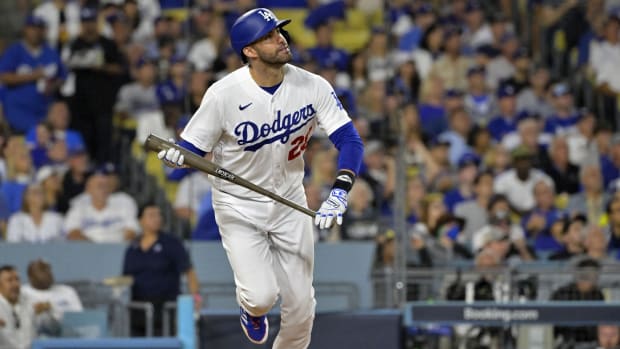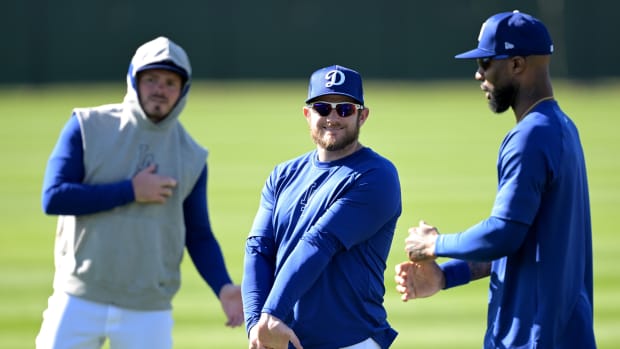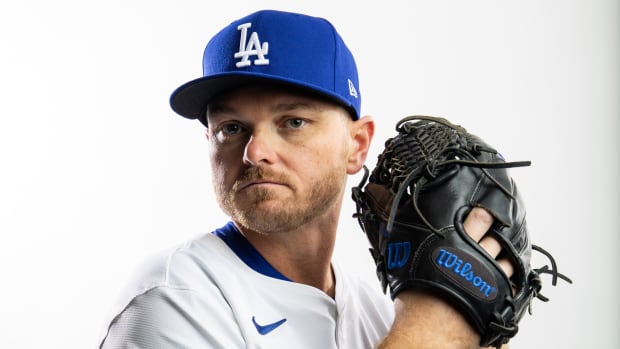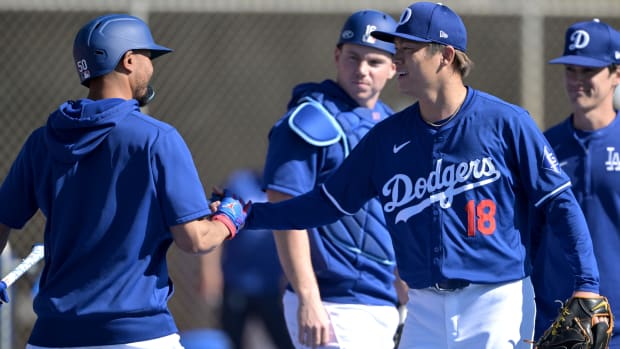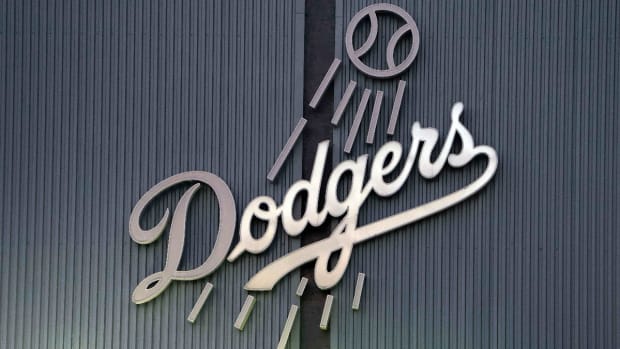Will There Be a 2020 MLB Season? Should There Be?
I want baseball. Live, major-league baseball. Yes, I somehow have just as many books, magazines, podcasts, movies, television shows, and household chores to try to get to as I did when the quarantine began more than two months ago. I also have a wife, a daughter, and a new puppy who are around more often than I’m used to, need my time, and to whom I am determined to devote my time. I also have a brand new 4K television that’s nearly 50 percent larger than my old one and a brain that has been conditioned over the last 30-plus years to receive a steady input of baseball from March through November. I want baseball!
The major-league players and owners want baseball, as well. Both are hoping they can start an abbreviated 2020 season by July 1, but that timing seems to be their only point of agreement.
Three weeks ago, the owners made a proposal to the players that contained a poison pill: a 50/50 split of this season’s dramatically diminished revenues that would result in further salary cuts beyond the pro-rated salaries the players had already agreed to in March. Noting that the owners don’t offer corresponding increases when revenues exceed expectations, the union rejected it out of hand, with Major League Baseball Players Association executive director Tony Clark accusing the owners of “trying to take advantage of a global health crisis to get what they’ve failed to achieve in the past,” a salary cap.
On Sunday, the players made their counter offer, which includes allowing teams to defer a portion of their best-paid players’ salaries should the playoffs be cancelled, expanded playoffs (the game’s best revenue generator) both this year and next, and the possibility of an offseason All-Star Game and Home Run Derby to generate even more receipts. The union’s proposal also includes paying “high-risk” players who opt not to participate in the season and a 114-game season. That last seems like an intentional poke at the owners who claim that they would lose money on every game played in an empty stadium. Not only is the players’ proposed season 33 games longer than the owner’s proposed half season, but it would be played in a mere 124 days (from June 30 through Halloween). That would give the players, who just negotiated for additional off days prior to the 2017 season, just 10 off days (baring scheduled double-headers) in a 17-week season.
The owners are expected to reject the union’s offer with similar speed. There is hope that the two sides, having staked out their respective extremes, can now negotiate toward a satisfactory compromise. I’m skeptical given the escalating labor tension of recent years and the looming battle over the next Collective Bargaining Agreement, which will come due in December of next year.
Yet, even if they can come to an agreement, it won’t answer the most important question about the 2020 season: should it be played? Much as we all may want the season to happen, Dodgers fans especially, is playing baseball during a global pandemic the right thing to do?
Over the weekend, a listener called in to one of my favorite political podcasts from her re-opened hair salon. The host initially struck a judgmental tone about the salon being open, but the caller explained that she had a simple choice: reopen or lose the business. Small business owners all around the country, and some not so small, are facing the same conundrum, but no major-league team is going to cease to exist because of the shutdown. Major League Baseball’s bottom line will suffer, but its owners won’t in any meaningful way, nor will the majority of major league players. (It is a very different story in the minor leagues, which recent reports say will not see regular-season play this year and could be reshaped by the current crisis).
Major League Baseball may want to salvage a 2020 season, but it doesn’t have to, and I’m increasingly convinced that it shouldn’t. To be perfectly honest, the movement toward reopening that has taken place in recent weeks scares me every bit as much as the initial spread of the virus. This is the part in the horror movie when the oversexed teenagers think they have killed the homicidal maniac and turn their back on him. We all know what happens next.
Yes, in general, and despite the contradictory efforts of the federal government, the United States has flattened the curve via a heroic and unprecedented social-distancing effort. However, outside of a handful of states, we haven’t seen a meaningful decline in cases. More importantly, the only reason the curve has flattened, the only reason there haven’t been way more than the already unfathomable 100,000-plus American lives lost to this disease - thousands more lost in just a few months than in the Korean, Vietnam, Gulf, Afghanistan, and Iraq Wars, and 9/11 combined - is because of social distancing. If we ease up on that, we’re back to where we started, because there is no cure, no vaccine, and no reliably effective treatment. Just look at what is happening in Georgia, which started reopening in late April.
It’s as if we were filling a bucket with water, noticed a leak, and shut off the tap. Now that the water has settled below the hole, and the bucket is no longer leaking, some are shouting to turn the tap back on, but we haven’t patched the leak. The 2020 Major League Baseball season would just be more water in the bucket.
Even without fans in attendance, playing a Major League Baseball season requires the intermingling of thousands of people, most of whom have families that multiply the number of contacts several times over, and many of whom are much higher risk than the fit, young players themselves. It requires most of those people to travel between cities, and it requires a near-constant rotation of contacts, which is great for making the competition fair, and a disaster for keeping a deadly disease at bay.
Even that presumes all of those people will be fully compliant with living in a virtual bubble for the next five to six months. As Steven Goldman pointed out on a recent episode of “The Inifinite Inning,” there is a long, storied history of players breaking curfew and team rules. Every player who can’t think beyond the end of his own bat and sneaks off to a bar in the prematurely reopening state of Florida, for example, expands the potential of infection both inside and outside of that bubble exponentially.
I still want to see the owners and players come to an agreement, just so there’s something in place for a best-case-scenario of an early vaccine or the like. However, such a miracle cure is one of the few things less likely than such an agreement. Much as I would jump for joy at a chance to watch a live baseball game on my new T.V. and to have an unfolding season to watch and write about and share with my family and friends, I’m not going to say I can’t wait for the 2020 season to start.
I can, because I must, and so should Major League Baseball.
Cliff Corcoran covers baseball for The Athletic and is a former lead baseball writer for SI.com. The co-author or editor of 13 baseball books, including seven Baseball Prospectus annuals, he has also written for USA Today, SB Nation, Baseball Prospectus, Sports on Earth, The Hardball Times, and Boston.com, among others. He has been a semi-regular guest analyst on the MLB Network and can be heard more regularly on The Infinite Inning podcast with Steven Goldman. Follow Cliff on Twitter @CliffCorcoran.
